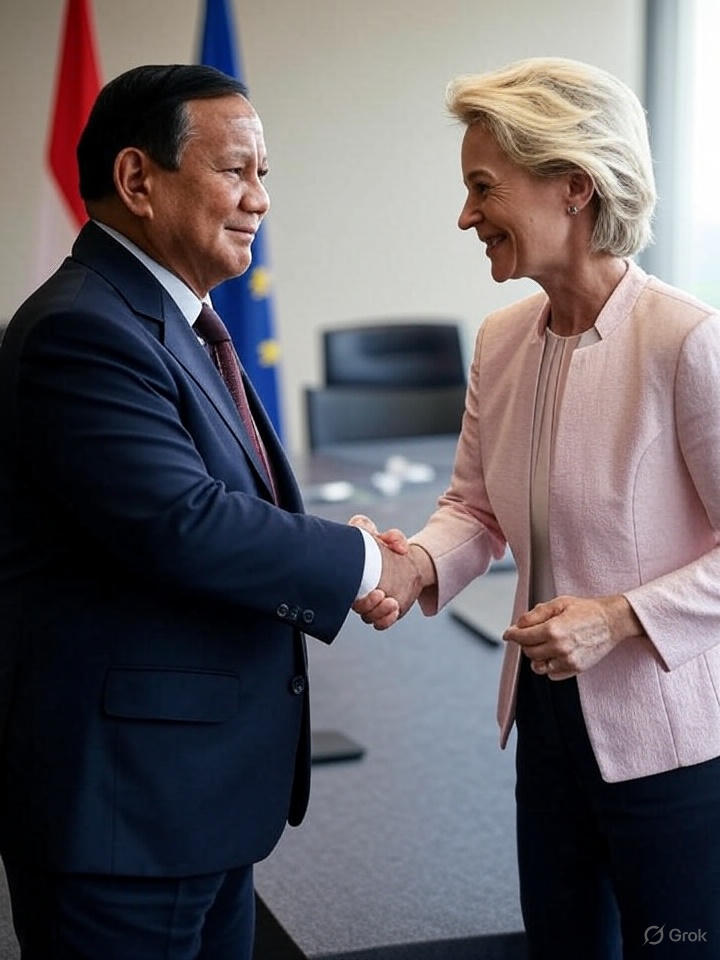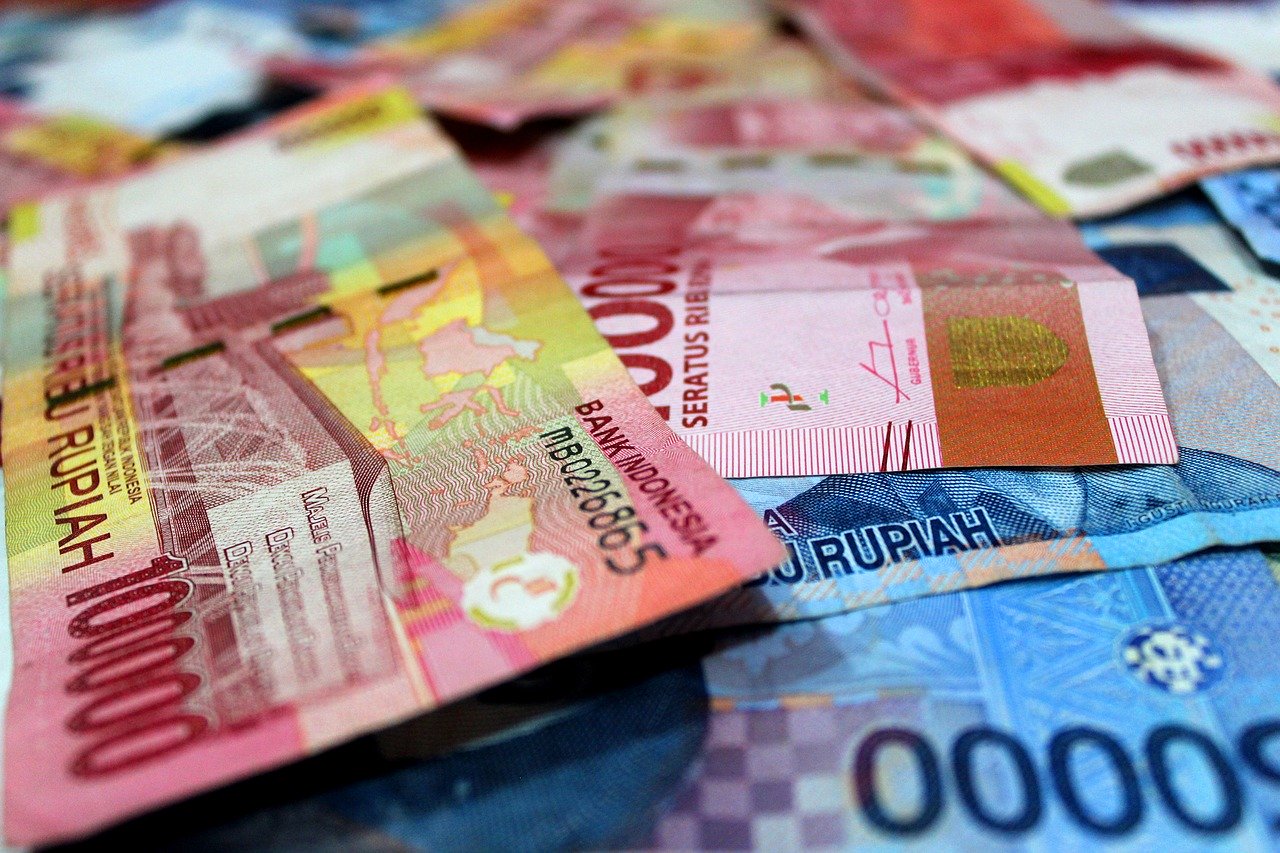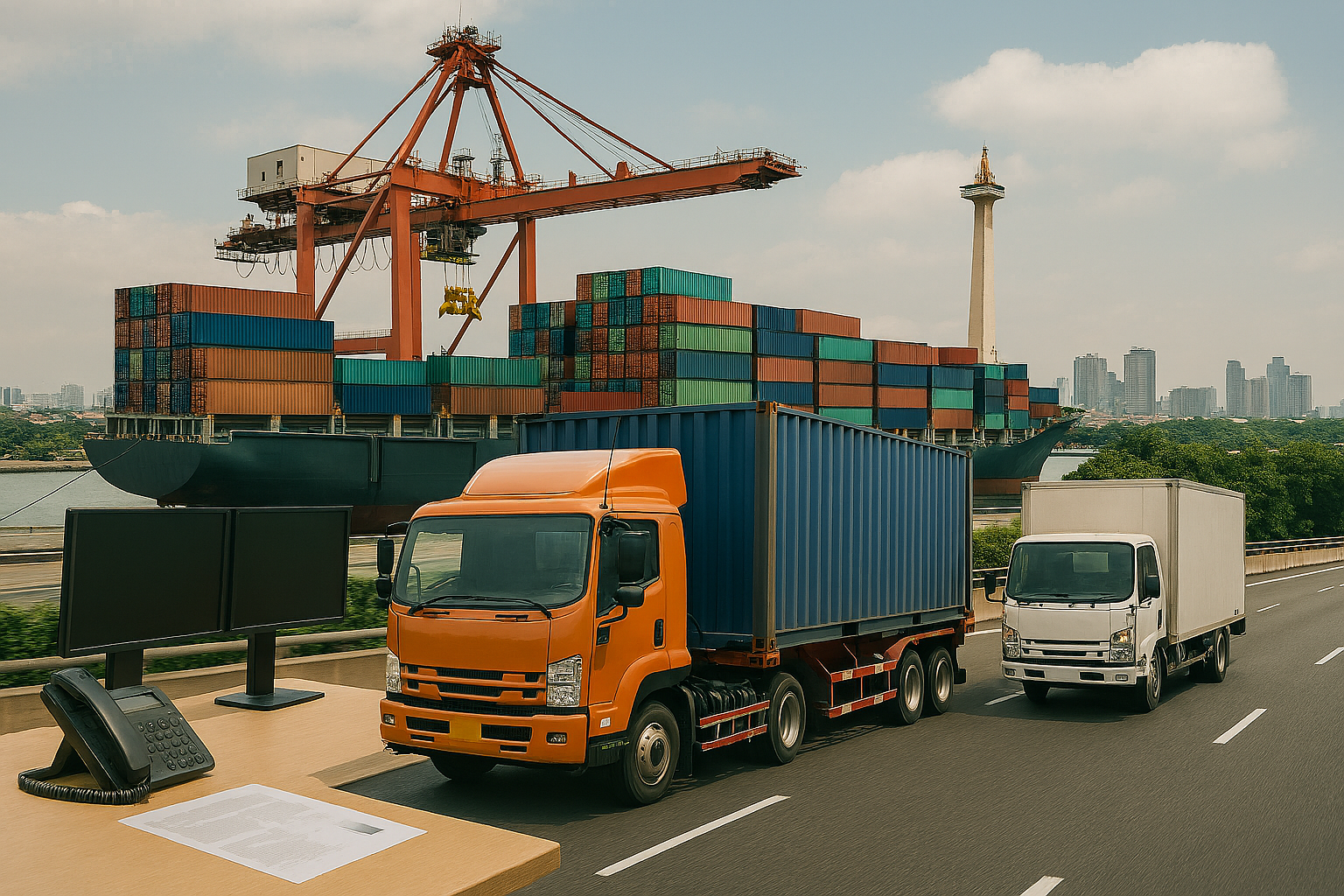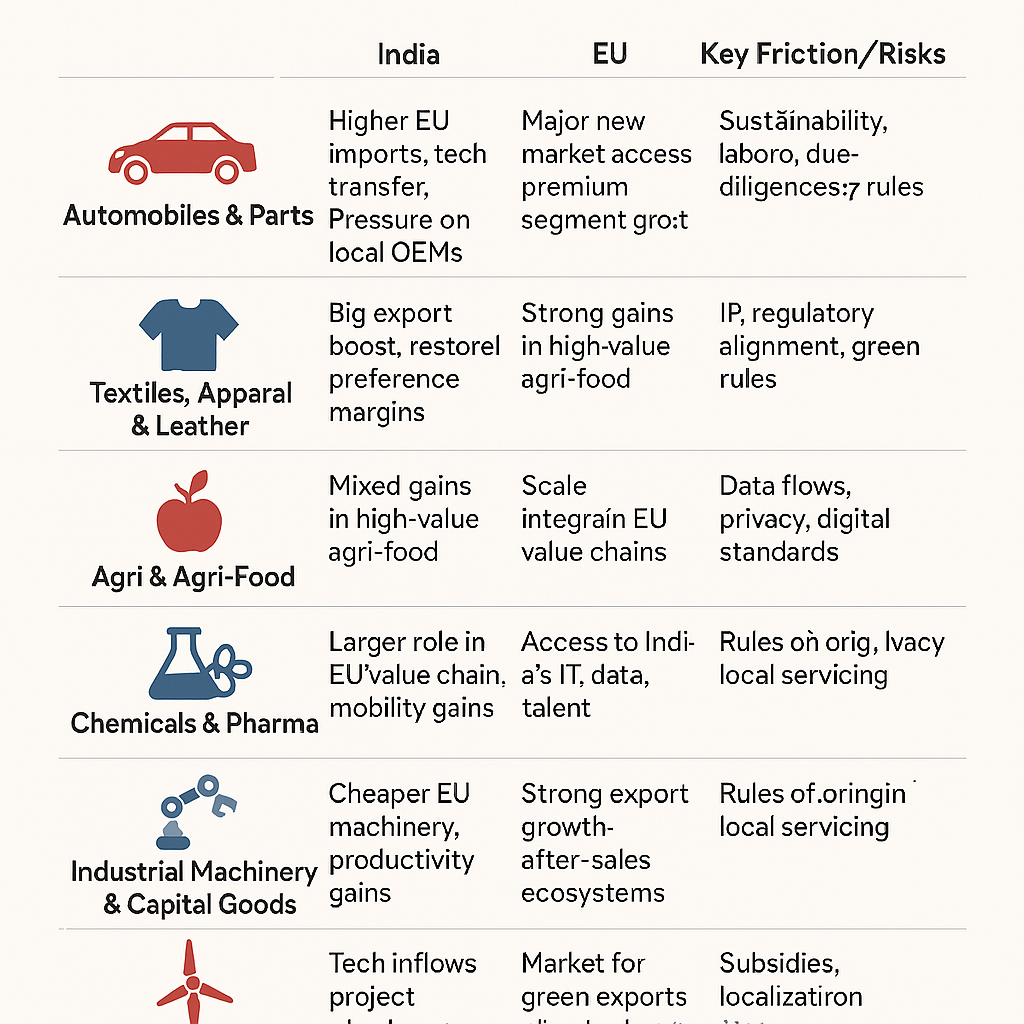The free trade agreement signed by Indonesian President Prabowo Subianto with the European Union is the Indonesia-European Union Comprehensive Economic Partnership Agreement (IEU-CEPA). On July 13, 2025, Prabowo and European Commission President Ursula von der Leyen announced a political agreement to advance this deal, marking a significant milestone after over a decade of negotiations that began in July 2016.
The IEU-CEPA aims to:
- Eliminate or reduce tariffs: Nearly all tariffs on goods traded between Indonesia and the EU will be reduced to zero, significantly boosting market access.
- Enhance trade and investment: The agreement covers 21 areas, including trade in goods and services, investment, customs procedures, digital trade, and sustainable development.
- Promote key industries: It creates opportunities in sectors like agriculture, automotive, and services, while strengthening supply chains for critical raw materials essential for Europe’s clean tech and steel industries.
- Foster sustainable development: The agreement aligns with goals to support economic growth, job creation, and environmental sustainability.
The deal is seen as a strategic response to global trade uncertainties, particularly in light of U.S. tariff policies under President Donald Trump. It is expected to be formally signed in September 2025 by EU Trade Commissioner Maroš Šefčovič and Indonesia’s Coordinating Minister for Economic Affairs, Airlangga Hartarto. The EU is Indonesia’s fifth-largest trading partner, with bilateral trade reaching $30.1 billion in 2024, and this agreement is poised to unlock significant untapped potential in their trade relationship.
The specific terms of the Indonesia-European Union Comprehensive Economic Partnership Agreement (IEU-CEPA) signed in July 2025 are not fully detailed in publicly available sources, as the agreement's text is still being finalized for formal signing in September 2025. However, based on available information, here are the key terms and provisions of the agreement:
Key Terms of the IEU-CEPA:
- Tariff Elimination or Reduction:
- Nearly all tariffs on goods traded between Indonesia and the EU will be eliminated or significantly reduced to zero, enhancing market access for both parties.
- Specific focus on boosting trade in key Indonesian exports like palm oil, agricultural products, and textiles, as well as EU exports such as automotive products and machinery.
- Trade in Goods and Services:
- The agreement facilitates easier access to markets for goods and services, covering sectors like agriculture, automotive, and digital services.
- It aims to streamline customs procedures to reduce trade barriers and improve efficiency.
- Investment Opportunities:
- The IEU-CEPA promotes foreign direct investment by creating a more predictable and transparent environment for businesses.
- It includes provisions to protect and encourage investments in both regions, particularly in Indonesia’s critical raw materials sector (e.g., nickel, tin) and the EU’s clean tech and steel industries.
- Sustainable Development:
- The agreement incorporates commitments to environmental sustainability, labor rights, and responsible business conduct.
- It aligns with global climate goals, ensuring trade supports green initiatives, such as sustainable supply chains for critical minerals used in clean energy technologies.
- Digital Trade and E-Commerce:
- Provisions for digital trade aim to facilitate cross-border data flows and e-commerce, fostering innovation and connectivity between the two markets.
- Supply Chain Resilience:
- The agreement strengthens supply chains, particularly for critical raw materials vital for Europe’s green transition (e.g., Indonesia’s nickel for batteries).
- It aims to reduce dependency on other global suppliers amid geopolitical uncertainties.
- Government Procurement and Intellectual Property:
- The deal includes provisions to enhance transparency in government procurement, allowing EU and Indonesian companies to compete for public contracts.
- It strengthens intellectual property rights protection to encourage innovation and fair competition.
- Dispute Resolution and Trade Facilitation:
- Mechanisms for resolving trade disputes are included to ensure smooth implementation.
- Simplified customs and trade procedures to reduce costs and delays for businesses.
Economic Impact and Scope:
- The EU is Indonesia’s fifth-largest trading partner, with bilateral trade valued at $30.1 billion in 2024.
- The agreement covers 21 chapters, addressing a wide range of trade and economic cooperation areas.
- It is expected to boost Indonesia’s exports to the EU by providing better market access and to attract more EU investment into Indonesia’s growing economy.
Context and Strategic Importance:
- The IEU-CEPA is seen as a counterbalance to global trade uncertainties, particularly U.S. tariff policies under President Donald Trump.
- It positions Indonesia as a key partner for the EU in the Indo-Pacific region and supports the EU’s strategy to diversify supply chains.
Key Points
- The Indonesia-European Union Comprehensive Economic Partnership Agreement (IEU-CEPA), signed in July 2025, seems likely to enhance trade and investment, with research suggesting up to 80% of Indonesia's exports to the EU could become duty-free within 1–2 years.
- It appears to include provisions for palm oil trade, addressing past environmental concerns, and is expected to boost exports by 50% within three years.
- The evidence leans toward the agreement covering 21 cooperation areas, including digital trade and sustainability, with potential economic growth increases of 0.04% for Indonesia and a 0.42% rise in EU foreign direct investment.
Overview
The IEU-CEPA, announced on July 13, 2025, by President Prabowo Subianto and EU Commission President Ursula von der Leyen, aims to strengthen economic ties between Indonesia and the EU. It follows over a decade of negotiations and is set for formal signing in September 2025, with an expected effect by late 2026 or early 2027.
Trade and Tariff Details
The agreement is likely to eliminate tariffs on nearly all goods, with up to 80% of Indonesia's exports, including palm oil and textiles, potentially becoming duty-free within 1–2 years. This could significantly boost market access for Indonesian products in the EU, which had bilateral trade of $30.1 billion in 2024.
Investment and Economic Impact
It seems likely to encourage European investment in Indonesia, with projections suggesting a 0.42% increase in EU foreign direct investment and a 0.04% rise in Indonesia's economic growth. The agreement may also facilitate easier market entry for European companies, potentially increasing trade volume to $60 billion.
Additional Provisions
The IEU-CEPA includes visa facilitation for Indonesian citizens, offering multi-entry Schengen visas for repeat visitors, and covers 21 chapters, including digital trade, sustainability, and government procurement, addressing environmental concerns like the EU's deforestation regulation.
Survey Note: Detailed Analysis of the Indonesia-EU Comprehensive Economic Partnership Agreement (IEU-CEPA)
The Indonesia-European Union Comprehensive Economic Partnership Agreement (IEU-CEPA), announced on July 13, 2025, by Indonesian President Prabowo Subianto and European Commission President Ursula von der Leyen, marks a significant milestone in bilateral economic relations. This agreement, following over a decade of negotiations since July 2016, is set for formal signing in September 2025 and is expected to take effect by the end of 2026 or early 2027. This survey note provides a comprehensive overview of the agreement's terms, drawing from recent announcements, official statements, and analyses, reflecting the state of knowledge as of July 19, 2025.
Background and Context
The IEU-CEPA aims to enhance trade and investment between Indonesia, a key Southeast Asian economy, and the European Union, Indonesia's fifth-largest trading partner with bilateral trade reaching $30.1 billion in 2024. The agreement is seen as a strategic response to global trade uncertainties, particularly U.S. tariff policies under President Donald Trump, and is expected to unlock significant untapped potential in their trade relationship.
Key Terms and Provisions
Tariff Elimination and Market Access
A central component of the IEU-CEPA is the elimination or reduction of tariffs on nearly all goods traded between Indonesia and the EU. Specifically, research suggests that up to 80% of Indonesia's exports to Europe will be duty-free within 1–2 years after the agreement takes effect, as highlighted in a Kompas.id article dated June 13, 2025. This includes key Indonesian exports such as palm oil, textiles, and agricultural products. For instance, current import tariffs on textiles and ready-made garments, ranging from 8–12%, are expected to receive duty-free facilities, enhancing competitiveness in the EU market.
The agreement also facilitates easier market access for both goods and services, covering sectors like agriculture, automotive, and digital services. It aims to streamline customs procedures to reduce trade barriers, with projections indicating a 50% increase in Indonesia's exports to the EU within three years, as noted in the same Kompas.id report.
Investment Opportunities
The IEU-CEPA is likely to promote foreign direct investment by creating a more predictable and transparent environment for businesses. Minister of Investment Rosan Perkasa Roeslani, in a statement on July 14, 2025, expressed hope that more European companies, such as L'Oreal and BASF, will expand and invest in Indonesia, opening opportunities from all 27 EU member countries. An ASEAN Briefing article from June 10, 2025, noted that EU FDI stock in Indonesia totaled €25.1 billion by the end of 2023, with major firms like Unilever and TotalEnergies expected to expand under the improved legal environment. The agreement is projected to increase EU FDI in Indonesia by 0.42%, contributing to economic growth.
Sustainable Development and Environmental Considerations
A special chapter on trade and sustainability addresses environmental concerns, particularly the European Union's Deforestation-Free Regulation (EUDR). This is crucial for Indonesian exports like palm oil, which faced previous restrictions. The inclusion of palm oil in the trade scheme, categorized into food and fuel, is a significant achievement, as reported by Kompas.id on June 13, 2025. This provision aims to align trade with global climate goals, ensuring responsible business conduct and supporting green initiatives, such as sustainable supply chains for critical minerals.
Digital Trade and E-Commerce
The agreement includes provisions for digital trade, facilitating cross-border data flows and e-commerce. This is expected to foster innovation and connectivity, covering areas like digital services and e-commerce platforms, as part of the 21 chapters of cooperation outlined in the Kompas.id report.
Government Procurement and Intellectual Property
The IEU-CEPA enhances transparency in government procurement, allowing EU and Indonesian companies to compete for public contracts. It also strengthens intellectual property rights protection, encouraging innovation and fair competition, as inferred from the comprehensive scope of the agreement's chapters.
Visa Facilitation
An additional benefit is the facilitation of visas for Indonesian citizens. As announced by Ursula von der Leyen on July 13, 2025, Indonesian citizens visiting the EU for the second time or more will be eligible for a multi-entry Schengen visa, simplifying travel for business, investment, and inter-societal connections, as reported by Tempo.co on July 14, 2025.
Economic Impact and Projections
The agreement is expected to have a measurable economic impact. According to the Kompas.id article, it is projected to contribute to a 0.04% increase in Indonesia's economic growth and a 50% increase in exports within three years. Minister Rosan also mentioned a potential trade volume increase from $30 billion to $60 billion, though specific details on this target were not fully accessible. The EU's investment is forecasted to rise by 0.42%, supporting Indonesia's economic diversification and resilience amid global uncertainties.
Timeline and Implementation
The IEU-CEPA is targeted for formal signing in September 2025 by EU Trade Commissioner Maroš Šefčovič and Indonesia’s Coordinating Minister for Economic Affairs, Airlangga Hartarto, as stated in an IDX Channel article on July 14, 2025. The ratification process is estimated to take 10–12 months in Indonesia and longer in the EU due to its 27 member countries, with the agreement expected to take effect by the end of 2026 or early 2027, as per Kompas.id.
Detailed Breakdown of Cooperation Areas
The agreement encompasses 21 chapters, as detailed in the Kompas.id report, including:
- Trade in goods and services
- Investment
- Customs procedures
- Small and medium enterprises (SMEs)
- Digital trade
- Government procurement
- Sustainable development
This comprehensive scope ensures a holistic approach to economic cooperation, addressing various facets of trade and investment.
Supporting Data and Analysis
To illustrate the potential impact, consider the following table summarizing key economic projections:
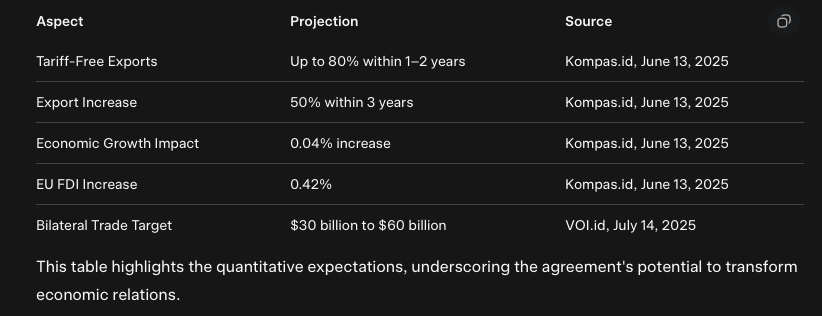
Controversies and Challenges
While the agreement has broad support, past negotiations faced challenges, particularly around palm oil and environmental regulations. The inclusion of palm oil and the sustainability chapter addresses these concerns, but ongoing monitoring will be essential to ensure compliance with EUDR and other environmental standards. The visa facilitation for Indonesian citizens also reflects a diplomatic effort to enhance people-to-people ties, potentially mitigating some trade-related tensions.
Conclusion
The IEU-CEPA represents a transformative step in Indonesia-EU economic relations, with detailed provisions on tariffs, investment, sustainability, and more. As of July 19, 2025, the agreement is poised to enhance market access, boost investment, and foster sustainable development, with significant implications for both economies. For the most accurate and up-to-date information, refer to official publications from the European Commission and the Indonesian government once the agreement is finalized.

